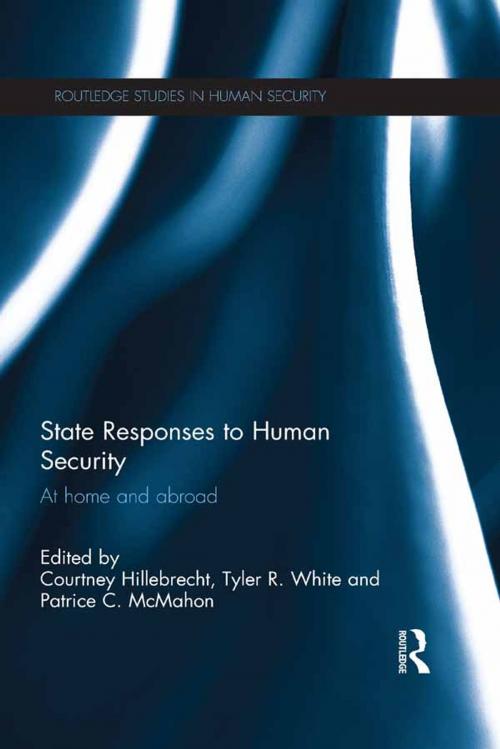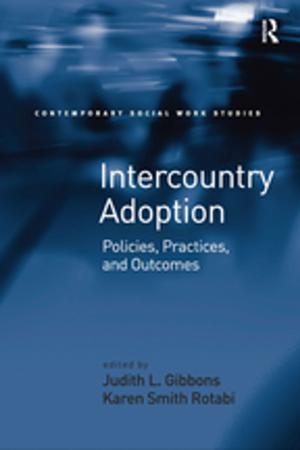State Responses to Human Security
At Home and Abroad
Nonfiction, Social & Cultural Studies, Political Science, International, International Security, International Relations| Author: | ISBN: | 9781134515783 | |
| Publisher: | Taylor and Francis | Publication: | November 7, 2013 |
| Imprint: | Routledge | Language: | English |
| Author: | |
| ISBN: | 9781134515783 |
| Publisher: | Taylor and Francis |
| Publication: | November 7, 2013 |
| Imprint: | Routledge |
| Language: | English |
The aim of this book is to analyse why and how states respond to human security, both at home and abroad.
Although states still define security as "the defense of territory" from military attack, increasingly security pertains to the protection of human beings from violence. This violence can emerge from rebels, drug traffickers, terrorism, and even environmental and demographic changes. While previous literature in this field has provided rich empirical detail about human security crises, it is generally quiet about how states respond to these crises.
State Responses to Human Security fills this lacuna by bringing in concepts from international security studies and focusing on states’ perceptions of power and the changing nature of human security. Instead of debating whether or not human security exists, the authors in this volume agree that human security has been redefined to include policies associated with violence toward individuals and groups, and draw on recent events in the Middle East, China and Mexico to understand how and when human security issues prompt state responses and affect international relations. The case studies analysed in this book suggest that states respond to human security threats differently, but in both the domestic context and abroad, power and perceptions matter greatly in shaping states’ reactions to human security concerns.
This book will be of much interest to students of human security, foreign policy, international relations and security studies in general.
The aim of this book is to analyse why and how states respond to human security, both at home and abroad.
Although states still define security as "the defense of territory" from military attack, increasingly security pertains to the protection of human beings from violence. This violence can emerge from rebels, drug traffickers, terrorism, and even environmental and demographic changes. While previous literature in this field has provided rich empirical detail about human security crises, it is generally quiet about how states respond to these crises.
State Responses to Human Security fills this lacuna by bringing in concepts from international security studies and focusing on states’ perceptions of power and the changing nature of human security. Instead of debating whether or not human security exists, the authors in this volume agree that human security has been redefined to include policies associated with violence toward individuals and groups, and draw on recent events in the Middle East, China and Mexico to understand how and when human security issues prompt state responses and affect international relations. The case studies analysed in this book suggest that states respond to human security threats differently, but in both the domestic context and abroad, power and perceptions matter greatly in shaping states’ reactions to human security concerns.
This book will be of much interest to students of human security, foreign policy, international relations and security studies in general.















